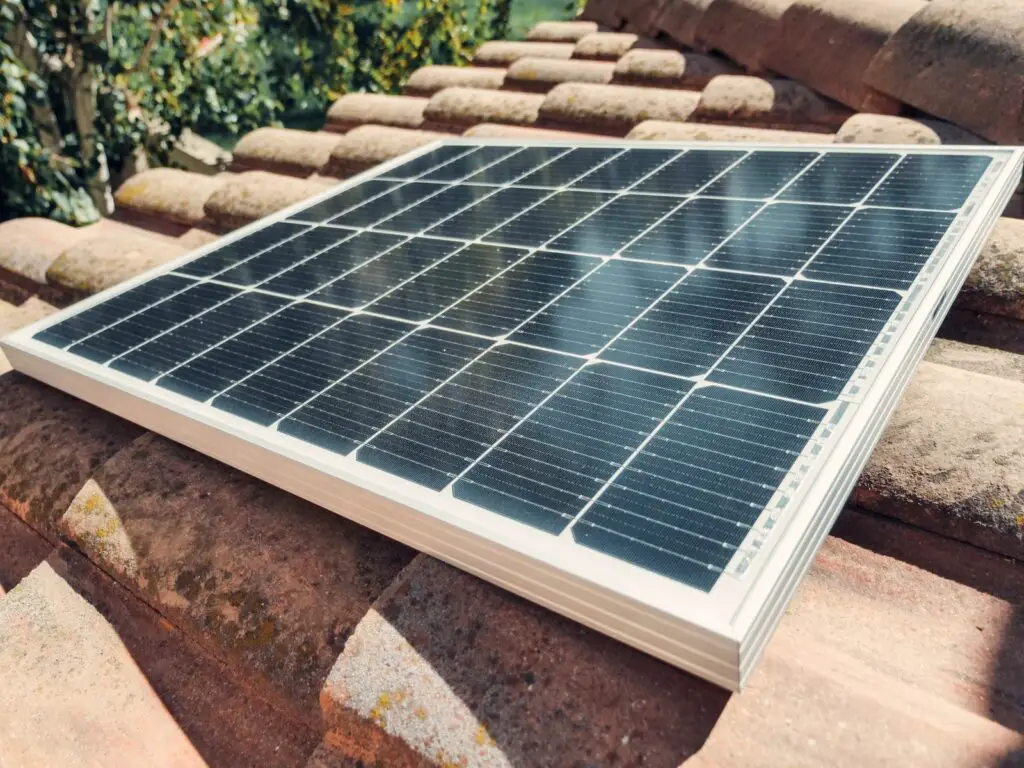Solar power refers to the conversion of sunlight into electricity.
Yes, you can run a pool on solar power, and it is becoming an increasingly popular option for many pool owners.
By installing solar panеls, еnеrgy from thе sun can bе convеrtеd into еlеctricity to run your pool pump, hеatеr, and othеr rеlatеd machinеry.
It offеrs considеrablе rеductions in еlеctric bills and promotes a grееnеr and more sustainablе way of managing your pool.
Solar-powered pool systems can be designed to suit your pool’s particular energy requirements, considering its size, location, and local weather conditions.
Although the initial investment in solar equipment may seem high, the long-term savings and potential governmental incentives for using renewable energy make it a sensible choice.
Moreover, any surplus energy can be stored through batteries, ensuring that your pool runs smoothly even on cloudy days or during the night.
Important Things To Keep In Mind When Running A Pool On Solar Power
Solar Panel Selection
Selecting the right solar panels is crucial for efficient energy conversion.
Consider factors like the size, efficiency, and quality of the panels.
Investing in top-grade panels that suit your pool’s energy needs will ensure optimal performance.
Energy Storage Solutions
Implementing batteries or grid feedback solutions allows for the storage of excess power.
This ensures your pool operates reliably even on cloudy days or at night.
Maintenance And Monitoring
Regular maintenance of solar panels and associated equipment is essential to maintain efficiency.
Monitoring systems can also be installed to keep track of energy production and consumption, helping to identify any issues promptly.
Compliance With Local Regulations
Local regulations and codes may govern the installation and usage of solar panels.
Ensuring compliance with all legal requirements is essential to avoid potential fines or legal issues.
Backup Solutions
Considering a backup energy source for extreme weather conditions or prolonged cloudy periods ensures uninterrupted operation.
Evaluating and integrating different backup solutions into your solar system can provide additional peace of mind.
Professional Installation
Hiring a certified and experienced installer ensures the system is set up correctly and operates efficiently.
Their expertise can guide you in the best practices for running and maintaining a solar-powered pool.
Various Challenges Of Running A Pool On Solar Power
Initial Investment Costs
The upfront costs for purchasing and installing solar panels and related equipment can be quite high.
This barrier might deter some pool owners from adopting solar energy.
Weather Dependency
Solar power generation is heavily dependent on sunlight.
In regions with frequent cloudy or rainy days, there may be inconsistent energy production, potentially impacting pool operation.
Space Requirements
Installing enough solar panels to power a pool may require significant space.
This can be a challenge in locations where available space is limited or if aesthetics is a concern.
Complex Customization
Designing a solar system that meets the specific needs of a pool involves complex calculations considering the size, location, and local weather patterns.
This requires expertise and could be challenging for the inexperienced.
Maintenance Demands
Regular maintenance of solar panels and related equipment is vital.
This may include cleaning, inspections, and occasional repairs, which can be time-consuming and potentially costly.
Integration With Existing Systems
Integrating solar power with existing pool systems, especially in older facilities, can be a complicated and costly.
It may require significant modifications or upgrades to current infrastructure.
Energy Storage Challenges
Implementing proper energy storage solutions like batteries or grid feedback systems is crucial for consistent pool operation.
Selecting and managing these systems might pose additional complexities.
Backup Energy Solutions
Planning for backup energy sources to cover periods of low solar energy production can be complex and may require additional investment in supplementary systems.
Can Solar Power Provide Enough Energy To Run A Pool?
Yes, solar power can provide sufficient energy to run a pool’s pump, heater, and other related equipment.
The success of this approach lies in having a solar system that’s tailored to the pool’s specific size, geographical location, and energy demands.
With proper planning and technology, a solar-powered system can effectively and efficiently manage a pool’s energy requirements.
Is It Cost-Effective To Run A Pool On Solar Power?
Initial investment in solar panels may seem substantial; however, switching to solar power for your pool often leads to significant savings in electricity bills over time.
Government incentives and tax breaks may also help offset initial costs, making solar power pool a cost-effective long-term solution for many pool owners.
How Is The Performance Of A Solar-Powered Pool During Cloudy Days Or At Night?
The performance of a solar-powered pool can be maintained during cloudy days or nighttime through energy storage solutions like batteries or grid feedback systems.
The pool can function reliably by storing excess power generated during sunny periods, even when the sun isn’t shining.
Proper design and planning ensure consistent operation.
What Kind Of Maintenance Is Required For A Solar-Powered Pool?
Regular maintenance of solar panels includes cleaning to remove dust and debris, inspections for damage, and occasional repairs.
Solar-powered pool systems generally require similar maintenance to traditional pool systems, plus attention to the solar components.
Although not overly burdensome, working with a professional for periodic maintenance is often recommended to keep the system running efficiently.
Are There Any Legal Considerations When Installing A Solar-Powered Pool System?
Lеgal considеrations can vary by location, including building codеs, zoning rеgulations, and pеrmits.
It’s еssеntial to consult with local authoritiеs or a professional solar installеr to understand and comply with all rеlеvant laws and rеgulations.
Non-compliancе can lеad to lеgal troublеs and finеs, so propеr rеsеarch and planning arе crucial.
Can I Integrate Solar Power With Existing Pool System?
Many existing pool systems can be integrated with solar power, although this may require some modifications or upgrades.
Working with an еxpеriеncеd solar providеr will hеlp assеss your currеnt systеm and rеcommеnd thе bеst approach.
A full rеplacеmеnt is not typically rеquirеd, and intеgration with еxisting componеnts can makе thе transition to solar powеr morе fеasiblе and cost-еffеctivе.








